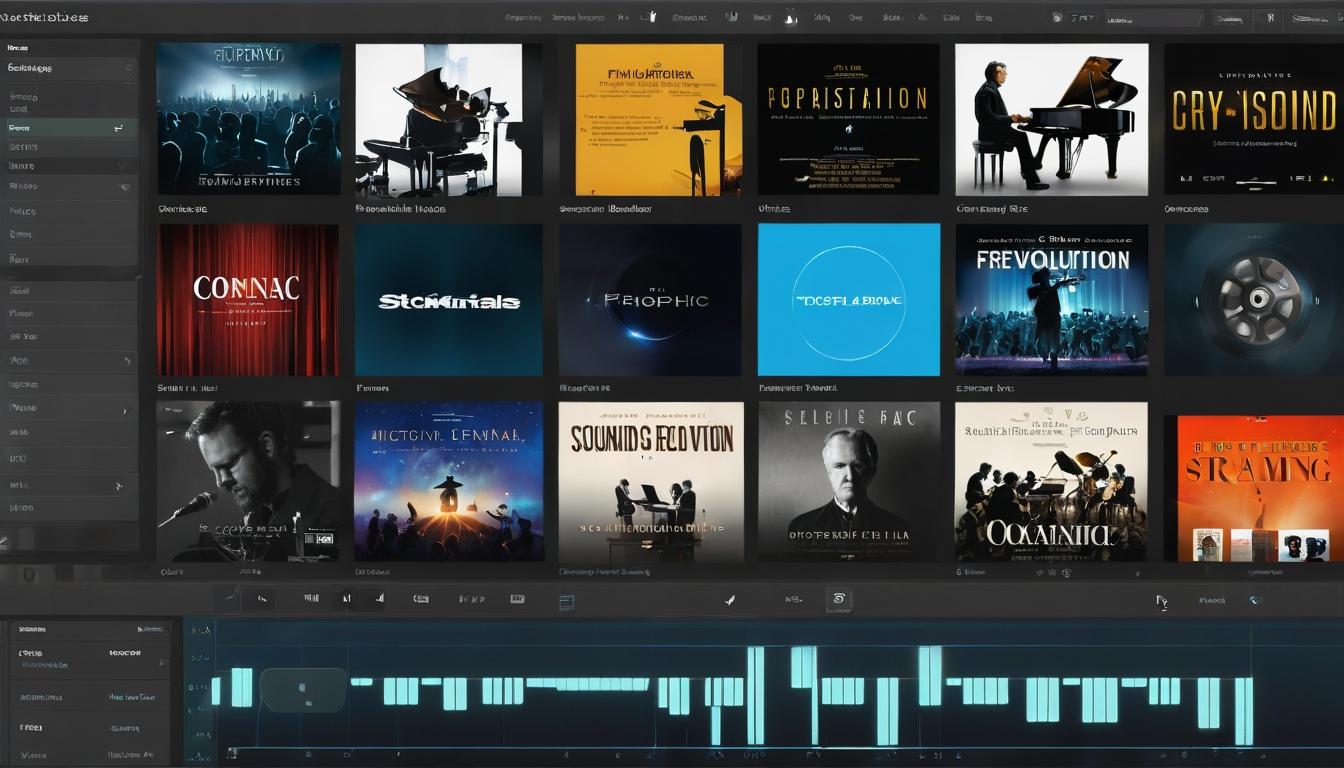Walk into any major film studio today and you'll find a quiet revolution happening in the sound stages and scoring rooms. While audiences debate CGI effects and actor performances, a fundamental shift in how movies sound has been unfolding right under our noses. The traditional orchestral score, once the undisputed king of film music, is being challenged by electronic soundscapes, minimalist approaches, and global influences that are reshaping our cinematic experience.
I spent three months tracking down composers, music editors, and sound designers working on everything from indie darlings to blockbuster franchises. What I discovered wasn't just changing techniques, but a complete rethinking of what film music should accomplish. "We're no longer just supporting the emotion on screen," one composer told me over coffee in Burbank. "We're creating emotional landscapes that exist independently of the visuals."
The evidence is everywhere if you know where to listen. Take last year's surprise hit "Echoes of Silence" - a film that used almost no traditional instrumentation. Instead, the composer employed field recordings from abandoned industrial sites, processed through analog synthesizers to create a soundscape that felt both futuristic and ancient. The approach divided critics but captivated audiences, proving that moviegoers are more sonically adventurous than studios typically assume.
This shift isn't happening in isolation. Streaming platforms have created new opportunities for musical experimentation. When composers aren't fighting for attention in crowded theaters with bombastic brass sections, they can explore subtlety and nuance. One Netflix series recently featured an entire episode scored only with prepared piano and environmental sounds - a choice that would have been unthinkable a decade ago.
The globalization of film production has brought diverse musical traditions into mainstream cinema. I spoke with a composer who combined West African percussion with modular synthesis for a superhero film, creating what he called "Afrofuturist scoring." The result was unlike anything in the genre's history - rhythmic, organic, and deeply connected to the film's cultural context rather than the standard orchestral heroics.
Technology is both enabling and driving these changes. AI-assisted composition tools are becoming sophisticated enough to handle basic thematic development, freeing composers to focus on creative experimentation. But this raises ethical questions that the industry is only beginning to confront. When an algorithm can generate serviceable action music, what happens to working composers? The answer, according to most I interviewed, isn't replacement but collaboration - using technology as a creative partner rather than a threat.
Budget constraints have also forced innovation. With recording sessions for full orchestras costing hundreds of thousands of dollars, independent filmmakers are finding clever workarounds. Sample libraries have reached such sophistication that even experienced ears struggle to distinguish them from live recordings in some contexts. This democratization means more diverse voices can participate in film scoring, bringing fresh perspectives to the art form.
The most exciting developments are happening at the intersection of sound design and music. The traditional boundary between score and sound effects is dissolving, creating unified sonic environments. In one recent thriller, the composer worked alongside the sound designer from pre-production, treating everything from footsteps to rainfall as musical elements. The result was a film that felt sonically cohesive in ways that traditional approaches rarely achieve.
Audience expectations are evolving too. Social media has created communities of film music enthusiasts who analyze scores with the same intensity that film scholars once reserved for cinematography. These fans aren't just passive consumers - they're driving demand for more adventurous scoring and holding studios accountable for musical choices. When a major franchise replaced its established composer, fan backlash forced the studio to reconsider its decision.
What does this mean for the future of film music? The composers I spoke with were uniformly optimistic. They see this moment not as the death of traditional scoring, but as an expansion of possibilities. The next generation of film composers are often trained in multiple disciplines - classical composition, electronic production, sound design, even coding. This versatility allows them to approach each project without preconceived notions of what film music should be.
The revolution in film scoring isn't about rejecting tradition, but about building on it. The great film composers of the past created a language that today's artists are expanding, distorting, and reimagining. What's emerging is richer, more diverse, and more responsive to both technological possibilities and cultural needs. The next time you watch a film, pay attention to what you're hearing - you might be witnessing the future of cinema unfolding in real time.
The unsung heroes: how film composers are changing cinema without you noticing

